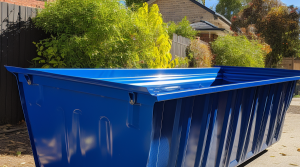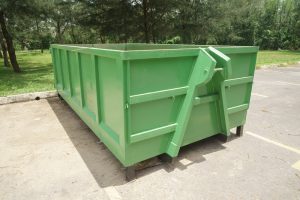The Importance of Skip Bins in Sustainable Waste Disposal
Introduction
In today’s world, where environmental concerns are at the forefront of public discourse, sustainable waste disposal has become a critical issue. With landfills overflowing and pollution levels rising, finding effective ways to manage and dispose of waste responsibly is paramount. Skip bins have emerged as a crucial tool in this endeavor, offering a convenient and eco-friendly solution for waste removal. This article explores the role of skip bins in sustainable disposal practices and highlights their importance in mitigating environmental impact.
The Problem with Traditional Waste Disposal
Traditional methods of waste disposal, such as landfilling and incineration, pose significant environmental challenges. Landfills take up valuable land space, emit harmful greenhouse gases, and can contaminate soil and water sources. Meanwhile, incineration releases toxic pollutants into the air and contributes to air pollution and respiratory problems. These practices are not only environmentally damaging but also unsustainable in the long run.

Sustainable Disposal: The Role of Skip Bins
The Role of Skip Bins in Sustainable Disposal
Skip bins offer a more sustainable alternative to traditional waste disposal methods. These large containers are designed to hold various types of waste, including construction debris, household rubbish, and green waste. By using skip bins, individuals and businesses can efficiently collect and segregate their waste, promoting recycling and proper disposal practices.
1. Waste Segregation
One of the key benefits of skip bins is their ability to facilitate waste segregation. Skip bin providers offer bins in different sizes and types, allowing users to separate different types of waste effectively. For example, recyclable materials can be placed in one skip bin, while non-recyclable waste goes into another. This segregation minimizes contamination and maximizes the amount of waste that can be recycled, reducing the overall environmental impact.
2. Efficient Waste Collection
Skip bins streamline the waste collection process, making it more efficient and cost-effective. Instead of making multiple trips to a landfill or recycling center, individuals and businesses can simply fill up a skip bin and have it collected by the provider. This not only saves time and labor but also reduces fuel consumption and vehicle emissions associated with transporting waste.
3. Promoting Recycling
By encouraging waste segregation and proper disposal practices, skip bins play a crucial role in promoting recycling. Recyclable materials collected in skip bins can be sorted and processed at recycling facilities, where they are converted into new products or materials. This helps conserve natural resources, reduce energy consumption, and minimize the need for virgin materials, contributing to a more sustainable economy.

Conclusion
In conclusion, skip bins are indispensable tools in the quest for sustainable waste disposal. By facilitating waste segregation, streamlining collection processes, and promoting recycling, skip bins help minimize environmental impact and conserve resources. As we strive to build a greener and more sustainable future, incorporating skip bins into waste management practices is essential. By embracing these innovative solutions, we can work towards a cleaner, healthier planet for generations to come. https://woodysskips.com.au/
Through effective use of skip bins, individuals, businesses, and communities can contribute to a more sustainable future while also fulfilling their waste disposal needs. As awareness of environmental issues continues to grow, the importance of skip bins in sustainable waste management will only become more apparent. Let’s embrace these eco-friendly solutions and pave the way for a cleaner, greener world.
